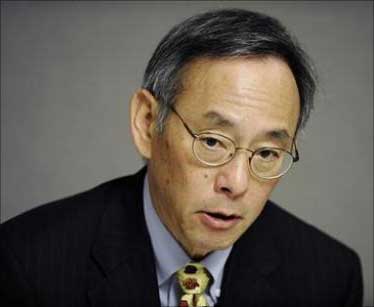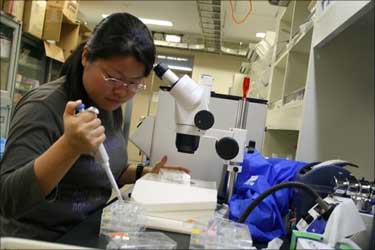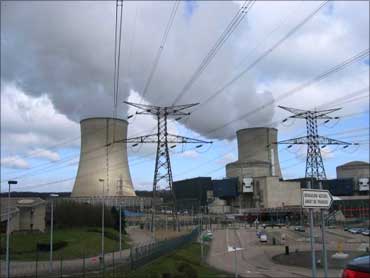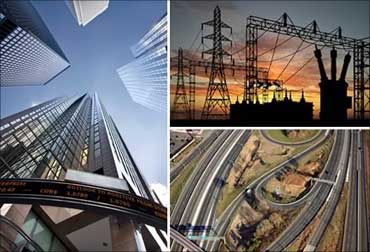Lalit K Jha in Washington
The US is gradually losing ground to India and China in research and high-tech manufacturing, a top Obama Administration official has said, while highlighting the need to collaborate with the two countries in various fields.
"Will we maintain America's innovation leadership, or are we going to fall behind? And I would say, let's seize this opportunity and we really can't afford not to," US Energy Secretary Steven Chu said at the National Press Club in Washington.
...
India, China marching ahead in hi-tech manufacturing: US
Image: A Chinese scientist working in a lab.In less than 15 years, China has moved from 14th place to second place in published research articles, now just behind the United States, he noted.
"Eight of the 10 global companies with the largest R and D budgets in the world are establishing research facilities in China or India or both," Chu said referring to the facts taken from 'Rising Above the Gathering Storm, Revisited' 2010.
...
India, China marching ahead in hi-tech manufacturing: US
Image: Applied Materials Moves Solar Expertise to ChinaAmerican company, Applied Materials, recently opened the world's largest private solar R&D facility in China, he said, adding that there is other evidence of Chinese innovation, particularly in the energy field.
China has installed the largest, highest-voltage-capacity, lowest-loss high-voltage DC lines and high-voltage AC lines in the world now.
And it has plans for an integrated high-voltage DC/high-voltage AC backbone.
It has broken ground now on 30 new nuclear reactors of the roughly 50 being built in the world, Chu said.
...
India, China marching ahead in hi-tech manufacturing: US
Image: A nuclear reactor.The United States is building two new reactors, he noted and said there is an opportunity to collaborate with India and China.
"We have much to collaborate with China, India and other countries. Why? In the next two decades, China is going to be building a new infrastructure of buildings, cities, roads, transmission lines, equivalent to the entire infrastructure of the United States," he said.
"In 2030, what India will look like in 2030 doesn't exist -- 80 per cent of what it has today -- what it will have in 2030 doesn't exist today. Eighty per cent of that infrastructure is yet to be built.
And so these countries present new markets. They also present a means, a laboratory, to see, okay, we can test it. This is going to work," he said.
...
India, China marching ahead in hi-tech manufacturing: US
Image: Infrastructure in the US."Our infrastructure is largely grown, and it's at replacement because our population ... is not growing the way India's -- and the mass migration of Chinese people from the farmland into cities is not occurring.
So there is an opportunity to work with China and India," Chu said while terming the rise of the two countries as the "Sputnik moment".
...
India, China marching ahead in hi-tech manufacturing: US
In research and development, private investments do not usually recoup the full value of the benefit, so companies are reluctant to do some of the early-stage research and development, he said.
"And quite frankly, a lot of the new technologies could displace an embedded way of doing business and could be met with resistance."
"Therefore, the government has to say, this is the path we should be going on for our long-term future prosperity, and we have to do that," Chu said.
"Wealth creation is driven by innovation, and it does not conserve quantity -- that if we collaborate with China and India, we both come out better for it," he argued.







article